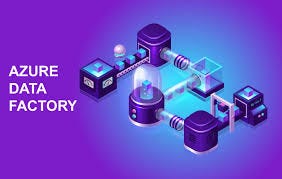Microsoft Azure Data factory
#DE:- All you need to know about Azure data factory
Summary Learning of Azure Data Factory
What is Azure data factory (ADF) and what is it used for?
Azure Data Factory, is a cloud-based data integration service provided by Microsoft. It is used to create, schedule, and manage data pipelines that move and transform data from various sources to various destinations. It provides a scalable and flexible way to build, schedule, and monitor data workflows in the cloud.
ADF pipelines are composed of several key components, including:
Data sources: These are the various data stores that you want to connect to and integrate data from. Examples of data sources include Azure Blob Storage, Azure SQL Database, and Amazon S3.
Data sinks: These are the destinations where you want to move or store your data. Examples of data sinks include Azure SQL Database, Azure Data Lake Storage, and Amazon Redshift.
Activities: These are the individual tasks that make up your data pipeline. Examples of activities include data transformations, data movement, and data analysis.
Triggers: These are the events that initiate your pipeline execution. Examples of triggers include time-based schedules, event-based triggers, and manual triggers.
Variables: These are the parameters that you can use to parameterize your pipeline and make it more flexible. Examples of variables include pipeline parameters, global parameters, and expression functions.
By using these key components in your ADF pipeline, you can create a flexible and scalable data integration solution that can handle a wide range of data integration scenarios.
What is data flow in Azure Data Factory?
Data flow is a data transformation service in Azure Data Factory that allows users to build data transformation logic without writing code. It provides a visual interface to design, debug, and run complex data transformations at scale.
What are the benefits of using data flow in Azure Data Factory?
Azure Data Factory offers a variety of data integration solutions and Data Flow is one of them. Here are some benefits of using Data Flow in Azure Data Factory:
Code-free Data Transformation: With Data Flow, you can visually design data transformation logic without writing any code. This makes it easier for non-developers to create complex data transformations.
Scalability: Data Flow is built on top of Apache Spark, which allows it to scale out to handle large datasets. This means that you can process data at scale without worrying about performance.
Reusability: Data Flow allows you to create reusable data transformation logic that can be used across multiple pipelines. This can save time and effort when building data integration solutions.
Integration with other Azure Services: Data Flow integrates with other Azure services such as Azure Databricks and Azure Synapse Analytics. This allows you to build end-to-end data integration solutions that span multiple Azure services.
Overall, Data Flow in Azure Data Factory provides a flexible and scalable solution for data transformation that can be easily integrated with other Azure services.
How does data flow differ from other data transformation services in Azure?
Azure Data Factory provides various data transformation services, such as Azure Databricks, HDInsight, and Azure SQL Database. However, Data Flow is a new feature in Azure Data Factory that offers a visual and code-free way to transform data at scale.
Compared to other transformation services, Data Flow provides a more intuitive drag-and-drop interface for designing ETL (Extract-Transform-Load) workflows. It also supports advanced transformations, such as pivoting, unpivoting, and merging data. Additionally, Data Flow leverages the power of Apache Spark to process big data workloads in parallel, making it ideal for handling large datasets.
Overall, Data Flow offers a more user-friendly and scalable approach to data transformation in Azure Data Factory compared to other services.
What is Azure Key Vault and how does it relate to Azure Data Factory?
Azure Key Vault is a cloud-based service that allows users to securely store and manage cryptographic keys, certificates, and secrets. It is integrated with Azure Data Factory to provide a secure and centralized location for storing sensitive information such as passwords, connection strings, and API keys.
Can ADF be used for real-time data processing?
Yes, Azure Data Factory (ADF) can be used for real-time data processing. ADF supports near real-time data processing through its integration with Azure Stream Analytics. This allows you to process and analyze streaming data in real-time as it is ingested into the system.
Thank You Hustler !


